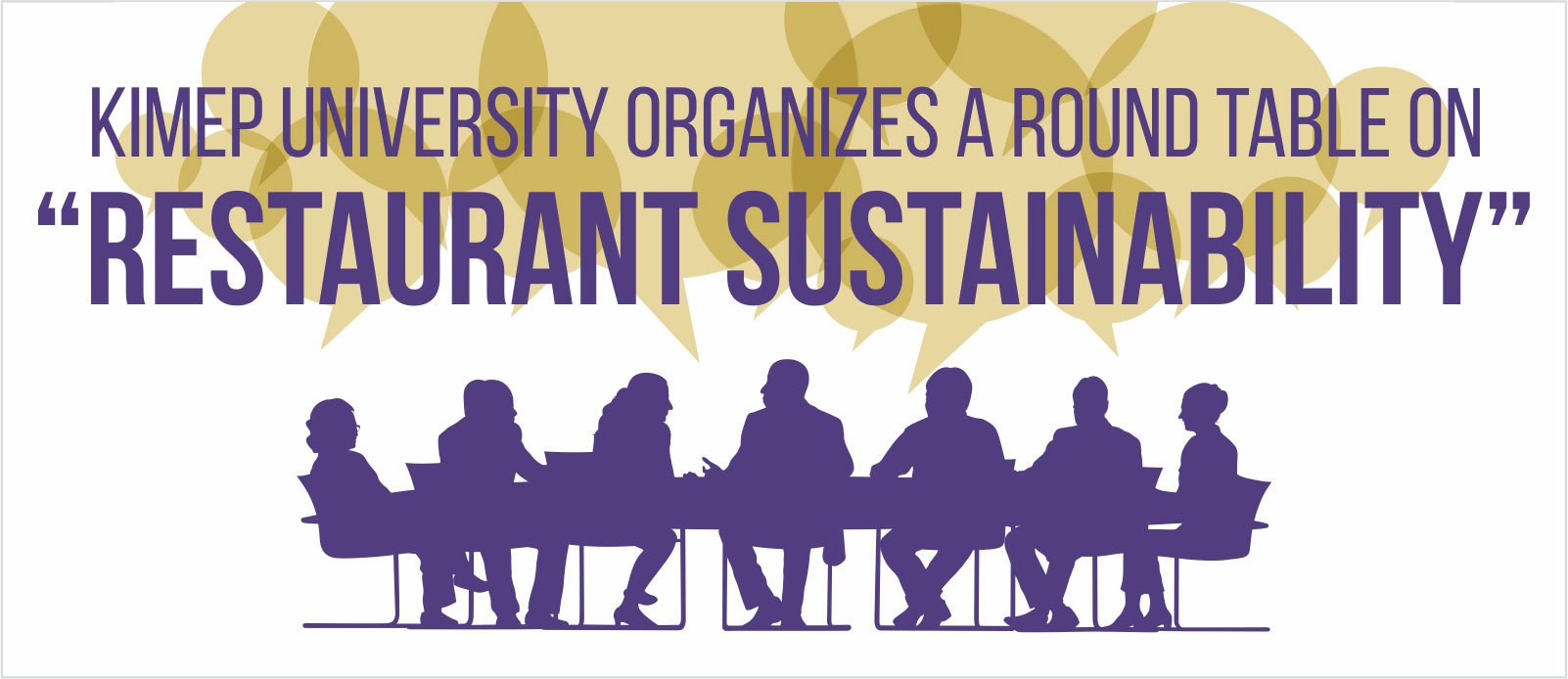A round table dedicated to Restaurant sustainability was held in KIMEP on September, 18.
Corporate social responsibility and corporate sustainability are very much connected. Sustainability depends not only on the financial results of the company but also on proper risk management. Loss of competitive advantage, damage to corporate image, lack of qualified personnel and issues with regulators are among the risks that businesses are facing. For this reason, responsible practices are aimed at anticipating those risks. Corporate sustainability is a hot topic not only for Kazakhstani companies but worldwide. For instance, less than 40% of the companies from Fortune 500 list in 1970’s survived until today.
To make sure entrepreneurs realize the benefits of sustainable behavior It’s crucial to distinct corporate social responsibility from charity. The round table in KIMEP was dedicated to the socially responsible practices of restaurateurs within their industry.
Restaurant business was selected as the central topic of the event for the reason that over 20% of KIMEP graduates are willing to work in this industry. Moreover, Almaty is the number one destination in Kazakhstan for eating out, as not less than 30% of its citizens are willing to spend money in restaurants. According to statistics, only 15% of Astana citizens are spending money in restaurants and 9% of citizens of Karaganda accordingly.
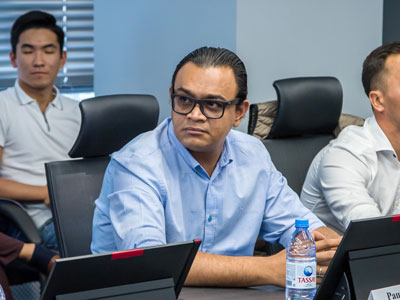
Our round table united owners and top managers of the restaurant industry: Rasul Abdullaev (Yuframe Burger), Ruslan Abishev (La Barca Family), Laura Bigazieva (Svet), Azat Bitanov (Mamma Mia, Ciao Pizza, Dushes), Xeniya Kozyura (Coffedelia), Sergey Maltsev (Chef, Pech), Yuriy Negodyuk (Pinta, Paul, BAO Sushi & Noodles Bar), Natalya Tyan (Coco Streetfood, abr), Can Erican (The Ritz Carlton, Almaty).
Rashidin Abd Rashid, an experienced cooking chef from Malaysia (Hilton, Shangri-La, Novikov Group and Parmigiano Group) was a special guest of the event.
Discussion was moderated by Ekaterina Rashidin, PhD, partner at Rashidin & Partners consulting agency.
The main topics covered during the meeting included (in decreasing order of importance) restaurant services, employees, suppliers and third parties, guests and society.
Services
Key points: “Local products are not considered prestigious among the customers. I am ready to buy Caspian lobsters, but our suppliers don’t think there would be demand for this species, so they don’t grow it” – Ruslan Abishev, La Barca Family.
There is another issue with local suppliers, which is connected to the quality of the products: “Kazakhstani farmers can’t maintain quality at a certain level. They show us their goods, we like it and order it, however within several weeks quality of these goods decreases” – Sergey Maltsev, co-owner of Chef and Pech restaurants.
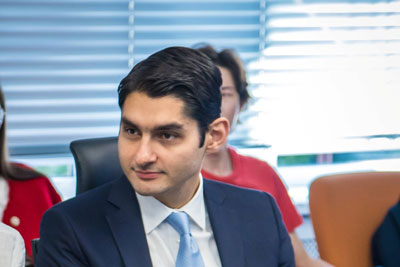
Can Erican, F&B director at the Ritz Carlton, Almaty suggests, that seasonality plays an important role in the relations with local suppliers: “berries grown in Almaty are one of the best I’ve ever tried. However, I can order them only three months in a year and I have to order berries from abroad during the rest 9 months. Guests in the premium sector are very demanding and they are expecting to have berries served any time of the year regardless the season”.
Rashidin Abd Rashid and Can Erican also agreed that HACCP (an internationally recognized system for reducing the risk of safety hazards in food) has not yet gained sufficient recognition in Kazakhstan. Traditionally managers from hotel industry are the most knowledgeable in this sphere. Rashidin Abd Rashid says, that he’s been following HACCP since 1999, but it’s challenging to implement it in Kazakhstan as it’s not familiar neither to employees nor to suppliers. Both speakers agreed to share their knowledge base on this subject with the colleagues.
Employees
Key points: “There are several restaurants in Almaty that employ people with disabilities such as Training Cafe. I think our colleagues could employ more disabled stuff or people from underprivileged background, for instance, orphans”– Evgeniya Kim, senior lecturer at KIMEP.
“Lack of prestige of restaurant careers creates a major problem in employing any group of workers. We find it challenging to invest into education and development of our staff, as they come and go all the time” – Sergey Maltsev. Experts consider that industry prestige and education are interconnected. Hospitality school could improve the situation and play a certain role in promoting restaurant careers. Ratatouille is one of the existing hospitality schools in Almaty, and according to the speakers, big restaurant groups should join their efforts as well.
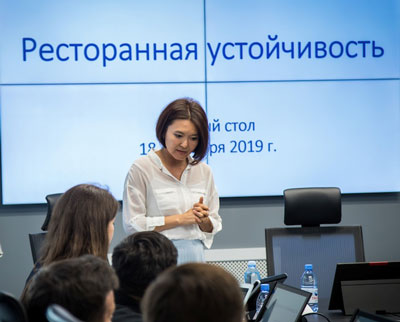
Experts shared their best practices in non-monetary incentives. According to Azat Bitanov (Mamma Mia, Ciao Pizza, Dushes), employees of his restaurants can invite their families for lunch or dinner to show around the place where they work. However, all speakers have agreed that staff is less interested in any kind of awards except for money. This limits the diversity of socially responsible motivational tools. Raushan Kanayeva suggests that this choice might be explained by Maslow’s hierarchy of needs: basic needs go before psychological needs.
Suppliers and third parties
Key points: Growth of recycling companies is the key factor to the adoption of environment friendly practices. «We started recycling plastics at Coco Street Food, and it works out quite well for us. Almost all types of plastics are recycled in Kazakhstan. As soon as all abr restaurants join the initiative, and we are planning to do so soon, demand for this third parties will increase. Restaurants should unite in their willingness to recycle which will boost the industry from the inside» – Natalya Tyan, co-owner of Coco Street Food (abr).
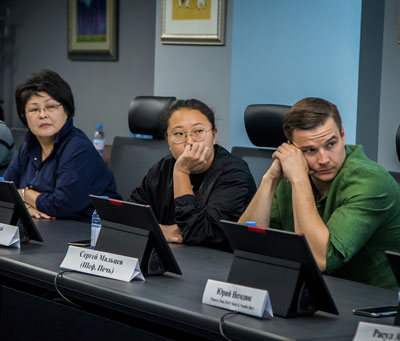
“While plastics can be recycled in Kazakhstan, there is nobody to take care of wet waste on the market. Especially it concerns the used coffee grounds. Most restaurants would determine it is wet waste which is not correct, these two kinds of wastes cannot be recycled together. In the meantime, there are many ways to utilize used coffee grounds, for instance, produce body scrubs, barbeque fuel, dishwashing detergent or even jewelry. Should somebody come up with a production of that kind, we will give away all used coffee grounds along with wet waste for free” – said Xeniya Kozyura, development director at Coffeedelia HORECA. Yuriy Negodyuk and Sergey Maltsev agreed.
Laura Bigazieva, director at Svet restaurant, has mentioned that “it’s quite common to serve filtered water to the guests in Western countries. This practice helps reduce plastic waste significantly”. Here not only guests but even all bypassing dogs are served water for free, which is a beautiful example of customer service. Nevertheless, restaurateurs haven’t come to an agreement upon this topic, as bottled drinks are an important source of revenue in their balance sheet.
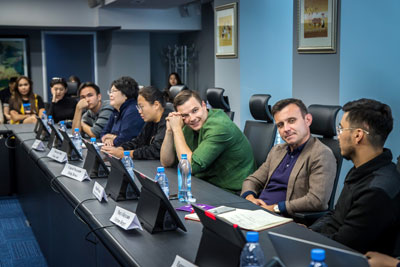
“In a follow-up to this round table we realized that there is a lack of information on third parties on the market. That’s why abr will come up with a kind of a directory uniting all recycling data for restaurateurs in Kazakhstan” – said Natalya Tyan.
Guests, society.
Key points: By the end of operating day there is often unsold food remaining in the restaurants (mostly bakery goods and packed dishes). Social organizations are reluctant to accept it for free despite the fact that the shelf life of the goods is still fine and can last for another 4 to 24 hours. For instance, PAUL management was sending unsold croissants to an orphanage in the end of the day. However very soon this institution stopped accepting their help. Rashidin Abd Rashid says that there should be a deep understanding of the shelf life of the products as well as an outreach program to find a common ground with the society.
Avocado is a student initiative that would help distribute unsold goods among those in need. It is somehow similar to the globally known Too Good To Go. Paul sells out its expiring goods via this app in many countries. According to the guests, logistics is another issue in this regard. “Somebody has to pay for transportation and then we will give away unsold food for free” – Natalya Tyan.
“We lack agents that would assist us in distributing unsold goods and in popularizing restaurant careers. Also, I think it would be great if the government supported our recycling initiative” – Ruslan Abishev.
Kazakhstani guests are generally not ready to pay more for socially responsible services neither in the medium nor in the premium segments. Yuriy Negodyuk told us about his attempt to fundraise for “Kuat” charity fund in Paul. It was announced on a New Year’s Eve, that all earnings from sales of a certain product would be donated for charity. Quite disappointingly, the sales of that particular dish remained at the same level as in the previous year. Nevertheless, the earned total of 400 thousand tenge was sent to the charity fund as it has been previously announced.
A similar program – “You Eat, We Give” – was launched in The Ritz Carlton this autumn. As Can Erican explained, their hotel donates one euro from every sold meal to the SOS Children’s Villages. “To be honest with you I was expecting a bigger interest towards this initiative from our guests. However, they still have time to join it!”.
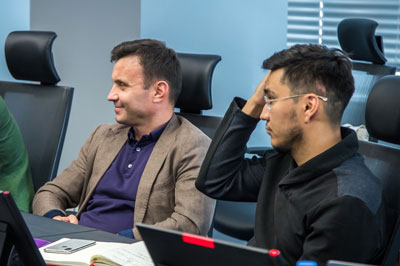
Fundraising experience of Rasul Abdullayev, co-owner of Yuframe Burger, seems to be more successful so far. His advertising agency KEX Marketing collected enough funds to build two houses for poor families in Guldala village. “Compete with one another in good deeds” – this is the message of Asar Ume project. As for the Yuframe Burger itself, its team is planning to launch a so called “sadaqah 1+1” dish. Should a customer buy one burger in the restaurant, Rasul will donate one more burger to the families in Guldala. “Kazakhstani guests have big hearts – I witnessed It many times when I worked here. I am persuaded that socially responsible initiatives will get a bigger support as time goes by, given that we talk about it more often” – concluded Rashidin Abd Rashid.
As a result of the discussion Rasul Abdullayev agreed to inform society about socially responsible initiatives of his colleagues via his marketing channels.

We are thankful to Associate Director Balzhan Suzhikova and to Adil Valikhanov, head of Translation department at KIMEP, for their invaluable help in organization of the event.
KIMEP is an independent not-for-profit educational institution serving a multicultural and multinational student body. Press release It is aimed to develop well-educated citizens and to improve the quality of life in Kazakhstan and the Central Asian region through teaching, learning, community service and the advancement of knowledge in the fields of
business administration and social sciences.
Post release was prepared by Ekaterina Rashidin: ekaterina.rashidin@gmail.com | +7 702 714 53 46.





